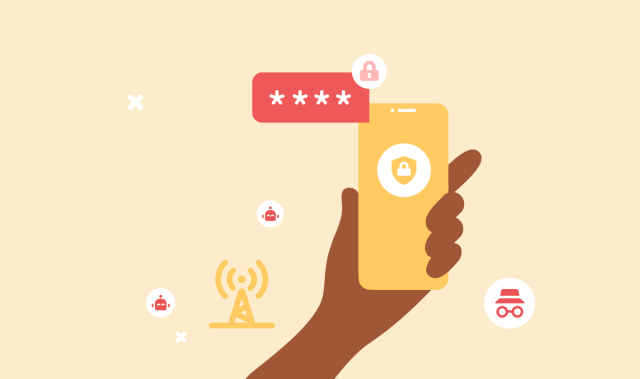In this article:
- Can you talk about how culture plays into digital innovation? What type of organizational culture might support the right approach — or is that the wrong question?
- Can you think of any companies that surprise you, in a good way, at how they’re using mobile? Maybe brands we don’t immediately think about as mobile innovators.
- What do you think accounts for that gap? Is it a consumer adoption problem or an enterprise problem?
- Does that finding surprise you?
- What’s a really hard-hitting question that a leader in customer experience should be asking themselves?
- What’s a skill that you think customer experience leaders lack today that they should be developing?
Michael Ricci is the Master Principal Solutions Architect at Oracle. As a key contributor to Oracle's Digital Marketing Center of Excellence, Ricci works closely with enterprise customers to architect solutions to their complex digital marketing challenges, and unify customer data to deliver true one-to-one personalization across the entire digital customer experience.
In this two-part series, we ask Ricci to comment on mobile customer experience innovation, and the hurdles enterprise leaders face as they race to outmaneuver the competition. (Want to read Part 1? Find it here.)
Can you talk about how culture plays into digital innovation? What type of organizational culture might support the right approach — or is that the wrong question?
No, it’s a good question. I think that those organizations that have gotten their minds around the need to bring together this data are invariably the ones that are switching onto the notion that mobile’s not just an extension of email; mobile’s not just another messaging channel. Mobile is the future. Mobile’s where consumers are going to transact, and therefore we need a mobile-specific strategy.
As you start to think about brands that are switched onto the importance of breaking down data silos, cohesively bringing this data together, and orchestrating personalized experiences at scale, they’re invariably the ones who have mobile strategies and are using data to inform very personal mobile experiences.
In the first part of this interview, you mentioned the big players like Uber and Amazon. These are brands all of us agree are innovative.
Can you think of any companies that surprise you, in a good way, at how they’re using mobile? Maybe brands we don’t immediately think about as mobile innovators.
One of them that I would applaud is Sephora. I think that they’ve done a really, really good job of marshaling data and creating personalized experiences. Also, they’re amazingly bright in how they mine transactional history and behavioral analytics to create personalized relevance. When I think of brands like Sephora, I think they get it.
When I think of brands like CVS, and the way in which they’ve literally focused almost intensely around mobile — and whether it’s “I need to refill my prescription” or “my loyalty card needs to be on my phone,” they’re embracing all forms of mobile. They see that as the centerpiece … not the laptop, not the desktop. Not that experience of yesterday. So those kinds of brands -- the CVSs and the Sephoras — are switched on and they’re doing some cool and innovative things.
In our customer base, DSW Shoe Warehouse is a good example of a brand that gets it, as well as Joann Fabric. In both cases, they’re not just marshaling data to inform personalized experiences, but they look at the many ways in which you can touch the mobile consumer. If you think about it, taking a step back, I don’t necessarily need to create an app. It’s great that I have one, but it’s super important that I embrace text messaging, that I embrace mobile wallet, that I embrace MMS — and, increasingly, that I look at new technologies like RCS — as all ways in which the consumer, in their own time and on their own terms, will engage my brand. So the enlightened brands are looking at not just, “Do I need an app?” but “How do I use all the rest of these mobile touchpoints to engage my consumer, to create convenience and experiences that deliver utility to improve their lives and make things easier?” Those are the brands that are going to win in mobile.
Sinch recently sponsored research that shows consumers say they want to interact with brands on their phones. They want things like alerts about their bank accounts, delivery notifications, message-based prescription refills … but even though they say they want these things, they aren’t using them to that same degree.
What do you think accounts for that gap? Is it a consumer adoption problem or an enterprise problem?
I think it’s more of an enterprise problem. The consumer has low tolerance for impersonalized experiences. And the vast majority of enterprises are not using data to create personalized relevance. I think it’s a matter of rethinking mobile, and I think a lot of enterprises are switching on and starting to rethink how they approach mobile and get outside this notion that it’s all about the mobile app — because it’s not.
One of the things the research also showed is that consumers, honestly, are literally downsizing their appetite for branded apps. The average consumer has somewhere between three to five branded retail mobile apps on their phone, including Amazon. So think about that: That’s precious real estate. If I’m all in on apps and I’ve forgotten how to touch the consumer with all the rest of these experiences — be they mobile web, push, SMS, digital wallet, RCS or MMS — I’m probably missing the game, right? I’m not going to successfully engage my consumer.
I think it’s a matter of fundamentally rethinking mobility from an enterprise standpoint and thinking about all the ways in which your consumer wants to engage your brand. There are lots of millennials who won’t download a branded retail app — period, end of sentence. So how do I reach them? Can I reach them through text? Sure, if I earn their trust. And “earn their trust” is all about using data to be relevant to them, to be important, to be valuable. The brands that aren’t doing that, they’re still scratching their chin and wondering why they’re not succeeding there. You can’t use the old email paradigm and apply it to mobile and expect to succeed.
One other finding from the research was that nearly 9 in 10 consumers say they’d rather all messaging takes place in the native phone messaging app, rather than separated out through Messenger, WhatsApp, branded apps, etc.
Does that finding surprise you?
No, not at all. Honestly, we live in a complex world — and consumers are in search of simplicity. Many consumers, especially millennials, use that messaging app to communicate with the outside world. Why wouldn’t you want to consolidate it? Why do I need Line and WhatsApp and all the rest of these messaging apps in order to communicate? I think people are looking for more simplicity in their lives.
As we look at the future of messaging and we think about technologies like RCS, it’s easy to see why they will transform how we use our phones. All of a sudden, you’re bringing together chatbot-style functionality, true interaction, and the ability to not just create messaging programs but, arguably, service customers. Allow them to post questions and get them answered, by technology. Having said that, I think we’re going to see that trend continue to play out. People want a simpler, more robust experience. They like what they’ve found in technologies like WhatsApp and Line and Facebook Messenger. They’re looking for that same kind of functionality in the native app that sits resident in their phone. That’s why I think RCS is such an important technology.
I’m going to turn the tables on you and ask you to put yourself in my shoes. What question should I be asking you?
What’s a really hard-hitting question that a leader in customer experience should be asking themselves?
That’s a good question. I guess the question would probably be more in the nature of: Given that we’ve seen all this disruption taking place with brands like the Amazons of the world that are mining all this data, that are succeeding wildly, why aren’t more brands embracing that?
I think that’s an interesting question. And the answer, as you can expect, is elegantly simple: This is hard work. It’s hard work to break down these data silos and bring it together, but increasingly I’m seeing signs, in our customer base and elsewhere, that brands are locking on and getting it. They’re beginning to invest in these initiatives to sequester and bring data together -- whether it’s big banks like CitiBank or Wells Fargo, or Guardian Financial or Charles Schwab. All of them have major initiatives underway to bring that data together, to collapse those silos and to begin to create what we call a connected customer profile. And I think it’s being driven just by -- as they look around the world and they start to see consumers flee from internet-centric experiences on their desktop to mobile-centric experiences.
We heard many years ago the notion of “mobile first,” right? Well, I don’t look at it per se as mobile first. I think increasingly marketers need to start thinking about “Holy smokes, that is the future -- and how is mobile going to evolve, and what are the mobility choices of tomorrow? In the last 10 years, maybe 15, we’ve seen the advent of tablet technologies, all kinds of other things. So what’s the future look like five years from now for mobile devices? How much more powerful will they be? What will voice-assisted search do? Things like Amazon and Google assistant and what have you. Those are bringing simplicity to the mobile device; they’re allowing older consumers to engage successfully without really having to understand how to use these things. So as we think about those technologies, how will they impact and impinge the consumer experience going forward?
The brands who are already thinking about that and getting out in front of it -- in particular, some of the folks who are innovating around RCS -- I think are the brands who invariably get it. They understand, still, that these are early-stage, to some extent experimental channels. But they’re embracing them, and they’re using them to innovate and create new types of experiences that are valuable for their consumers. It’s those brands, I think, that win the day going forward.
What’s a skill that you think customer experience leaders lack today that they should be developing?
Data centricity. When you think about it, invariably customer experience is all about using data smarter. And there’s a lot of people who are CX professionals who don’t have necessary data backgrounds. I think it’s about data and analytics going forward. And the people who understand that and who are able to mine insights from data and use data, marshal it to create these personalized experiences -- those are going to be the folks who succeed wildly going forward.
It’s not a skill that we see tons of today. We’re seeing increasingly companies going all-in and really beginning to look for those types of practitioners, but that’s the one skill I think that’s absent.
Want to find out more about what inspires Ricci? We asked him what book has changed his thinking over the last six months. He says Digital Transformation, by Tom Siebel of Siebel Systems, “focuses on this notion of what’s happening from a digital transformation standpoint, what tomorrow looks like.”
Want to learn more about how messaging is reshaping the consumer experience? Read our Mobile Consumer Engagement 2020 report here.



